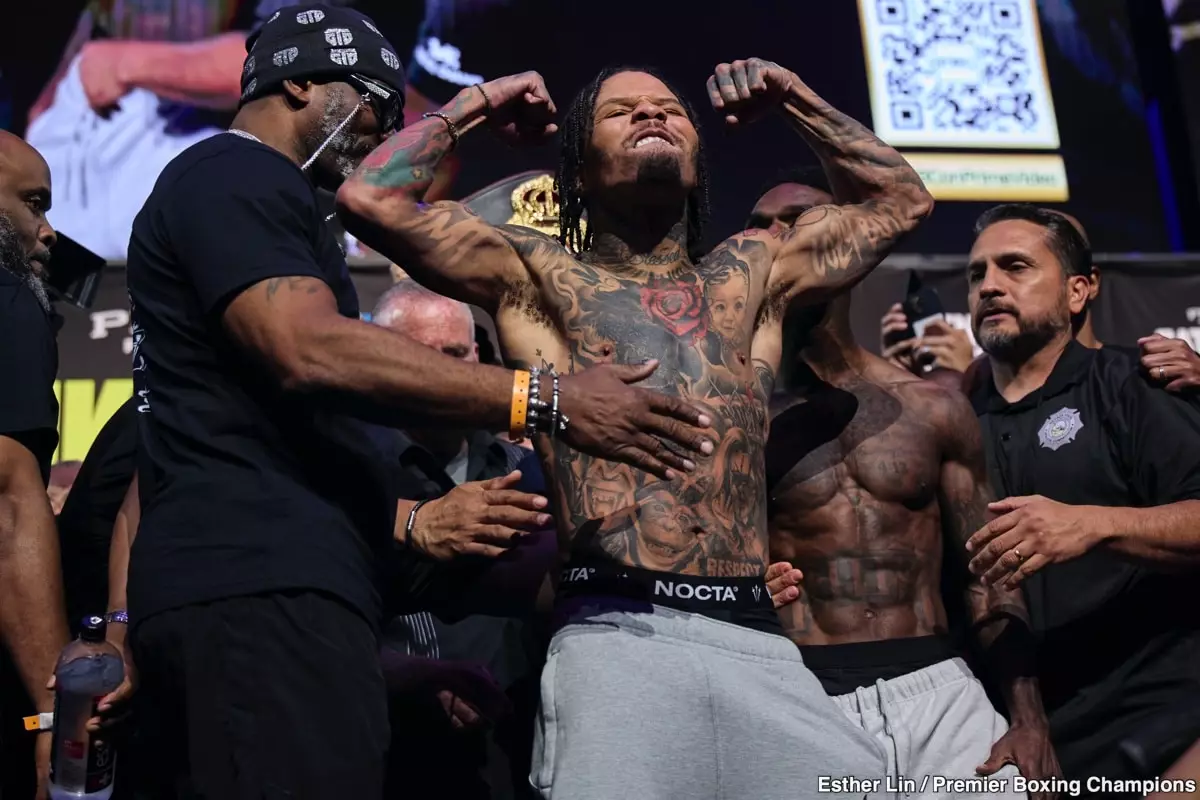By Amílcar Barnett-
The pressure to deliver exciting fights and showcase real talent is paramount in professional boxing. However, as ESPN analyst and hall of famer Tim Bradley points out, the boxing landscape does not always reflect this expectation, highlighting Gervonta “Tank” Davis and his upcoming title defense against Lamont Roach as a prime example. Bradley’s critique of this potential matchup raises significant questions about the integrity of matchmaking in the sport. With a career record boasting 30 victories and 28 knockouts, Davis’s reputation appears formidable at first glance. Yet, Bradley likens him to a “30-year-old prospect,” stressing that his opponents have often been carefully selected to ensure he appears dominant rather than facing truly competitive fighters.
Bradley argues that the matchmaking strategy used by Premier Boxing Champions (PBC) seems more about constructing an appealing narrative around Davis than about challenging him as a boxer. This leads to a perception of insincerity in the sport, suggesting that PBC is more interested in profit than in cultivating genuine competition in the ring. By posting impressive statistics against relatively weak opponents, Davis’s handlers create a façade of greatness—one that, according to Bradley, should raise alarms among discerning boxing enthusiasts.
Bradley’s comments highlight a significant disappointment regarding Davis’s career trajectory: a missed opportunity to face stronger opponents, such as Shakur Stevenson or Vasiliy Lomachenko, at earlier stages of their careers. This neglect raises questions about the motivations behind these decisions—were they driven by fear of defeat or strategic planning aiming to maintain Davis’s undefeated record? By waiting until Lomachenko turned 37 to show interest, the opportunity for a legitimate clash of skills was irretrievably lost. Such instances evoke the feeling that the boxing world is missing out on potential super-fights that could elevate the sport, ensure historical significance, and draw wider audiences.
The question of the true nature of Davis’s competition becomes crucial when we observe that his fights rarely resemble 50-50 encounters. He has continuously been cast in the role of the favorite, which undercuts the thrill of uncertainty that boxing fans often crave. Bradley’s assertion that fans are not as oblivious as Davis’s supporters may believe serves as a call to action— urging both fans and the boxing community to demand higher stakes that reflect real talent rather than theatrically engineered matchups.
What makes this discussion even more pertinent is its implications for the future of aspiring champions in boxing. Bradley underscores the importance of taking risks to forge a legacy that resonates with fans and stands the test of time. The reluctance to engage in high-stakes bouts dilutes the excitement around Davis’s career and hints at a troubling trend where promoters prioritize star power over sporting merit. For younger fighters observing Davis’s path, this approach may signal that financial considerations outweigh the traditional call of competition, leading to a generation of boxers more focused on maintaining records than on challenging themselves against top-tier talent.
Davis’s reliance on favorable one-sided matchups raises doubts about his long-term place in boxing history. How will he be remembered if he continues to avoid elite competitors? In a sport that celebrates grit, resilience, and true competition, Davis’s reliance on carefully curated fights may ultimately undermine his legacy. The question remains: will he rise to the occasion and challenge himself against formidable opponents, or will he fall into the trap of protective matchmaking that cheapens his accomplishments?
The overarching concern raised by Bradley is not just about one fighter but about the integrity of the sport itself. With numerous opportunities for genuine competition slipping through the cracks, fans and boxing critics alike must hold promoters and fighters accountable for their choices. Just as Davis has the potential to be a genuine champion, the boxing community must actively call for the fights that fans deserve. Only through meaningful competition can the sport recapture the excitement that draws audiences worldwide and solidify its status as a noble endeavor.
Gervonta Davis finds himself at a crossroads, where the choices made today will impact not only his legacy but also the perception of the sport moving forward. The boxing world is buzzing with potential matchups waiting to be realized, but whether they materialize remains to be seen. One thing is certain: simply maintaining a polished image and a perfect record will not suffice in a sport that thrives on true competition and the spirit of challenge. Only time will tell if Davis is willing to embrace that spirit and transcend the limitations prescribed by his own promotional team.


Leave a Reply